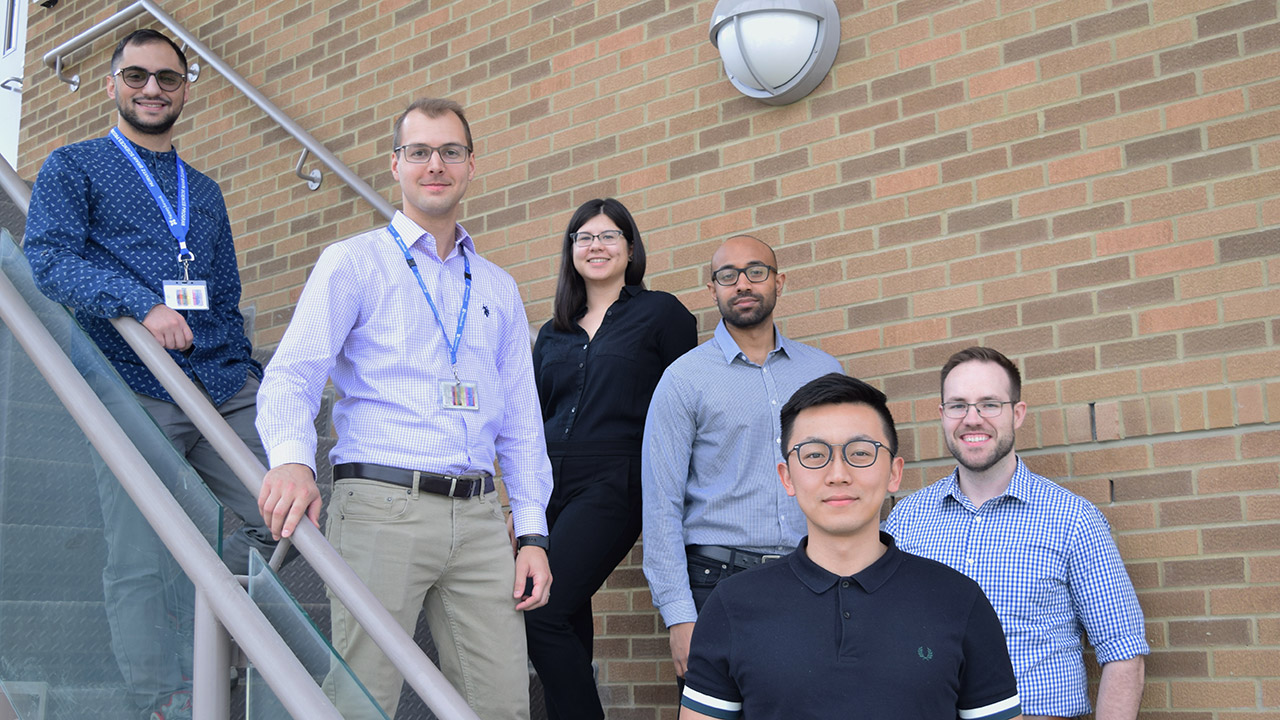Sunnybrook Research Institute’s Peer Network creates a sense of community among trainees
Dr. Mark Li looks back fondly at his time in the student association of Walter and Eliza Hall Institute in Melbourne, Australia. During his PhD studies there, he was the international student representative and student mentor in the association, which organized seminars and social functions for students, among other undertakings. He has experienced first-hand the benefits of such a group. “I have seen the tremendous positive impact of it on students’ and staff’s social life, academic development and personal achievement,” says the postdoctoral fellow in the lab of Dr. David Andrews, director of Biological Sciences at Sunnybrook Research Institute (SRI).
It’s these advantages that Li and a team of six others are bringing to SRI through the SRI Peer Network. Aside from Li, the organizing committee of the peer network includes Zaid Al-Azzawi, Dr. Justin Kale, Alison Mark, James Pemberton and Justin Pogmore. Hailing from the Andrews lab with Li are Kale, Mark, Pemberton and Pogmore. Al-Azzawi’s supervisor is Dr. JoAnne McLaurin, a senior scientist in Biological Sciences at SRI.
The SRI Peer Network is an organization built by, and for, trainees at SRI. The aim is to foster a sense of community. “There is a general consensus among us that everyone has been confined to their lonely laboratory islands. Little is going on to connect people with others or important resources,” Li says.
Pogmore, a PhD candidate and the president of the peer network, also touches on lack of unity. “I recognized early in my PhD studies that there is little cohesion between the research laboratories at SRI outside of direct scientific collaboration,” he says. “It was only until I met a mentor of mine, Dr. Nana Lee, who teaches the graduate professional development course at the University of Toronto, that I found the inspiration to take this initiative forward. Working as a student mentor in Dr. Lee’s course prepared and inspired me to reach out to the community of trainees at Sunnybrook and try to put in place what not only myself, but other trainees, feel is missing from conducting research away from the main university campus.”
One way to encourage interaction is by offering this group what it wants and needs. To this end, the SRI Peer Network plans to introduce seminars that provide professional development. On a more casual front, it also hopes to arrange social activities, like coffee gatherings and sporting outings, Li says.
On the note of upcoming symposiums, Pemberton chimes in. One event the network is planning is Introduction to SRI Technologies, a half-day symposium aimed at presenting to trainees the scientific equipment available for use. “The idea is for different representatives from different labs to discuss a technology they have without going into the details of their science. This symposium is not about the science, but instead about the different capabilities and opportunities that exist here for SRI trainees to take advantage of,” he says. Promoting collaboration among labs is also a goal, the PhD candidate mentions.
The SRI Peer Network’s first event was held May 10, 2019. David Paddon, a member of Toastmasters International, delivered a talk on using successful communication techniques to connect with an audience. Toastmasters International is a nonprofit organization with branches around the world. It teaches public speaking and leadership skills.
Li says what may already be a difficult transition for incoming students is made tougher without a support circle. “This has a negative impact on students and the institute’s performance in the long run,” he says. Pogmore notes that the transition is particularly challenging for international students, whom he says have an especially hard time integrating in the current environment.
With the peer network, Li, Pemberton and Pogmore are part of the push to change that.
In a nutshell
- Sunnybrook Research Institute’s Peer Network—designed by and for postdocs and graduate students—aims to foster unity.
- Its goal is to connect its members through events, such as professional seminars and social activities.
- The benefits include collaboration among members, a sense of support for those involved and better research.



